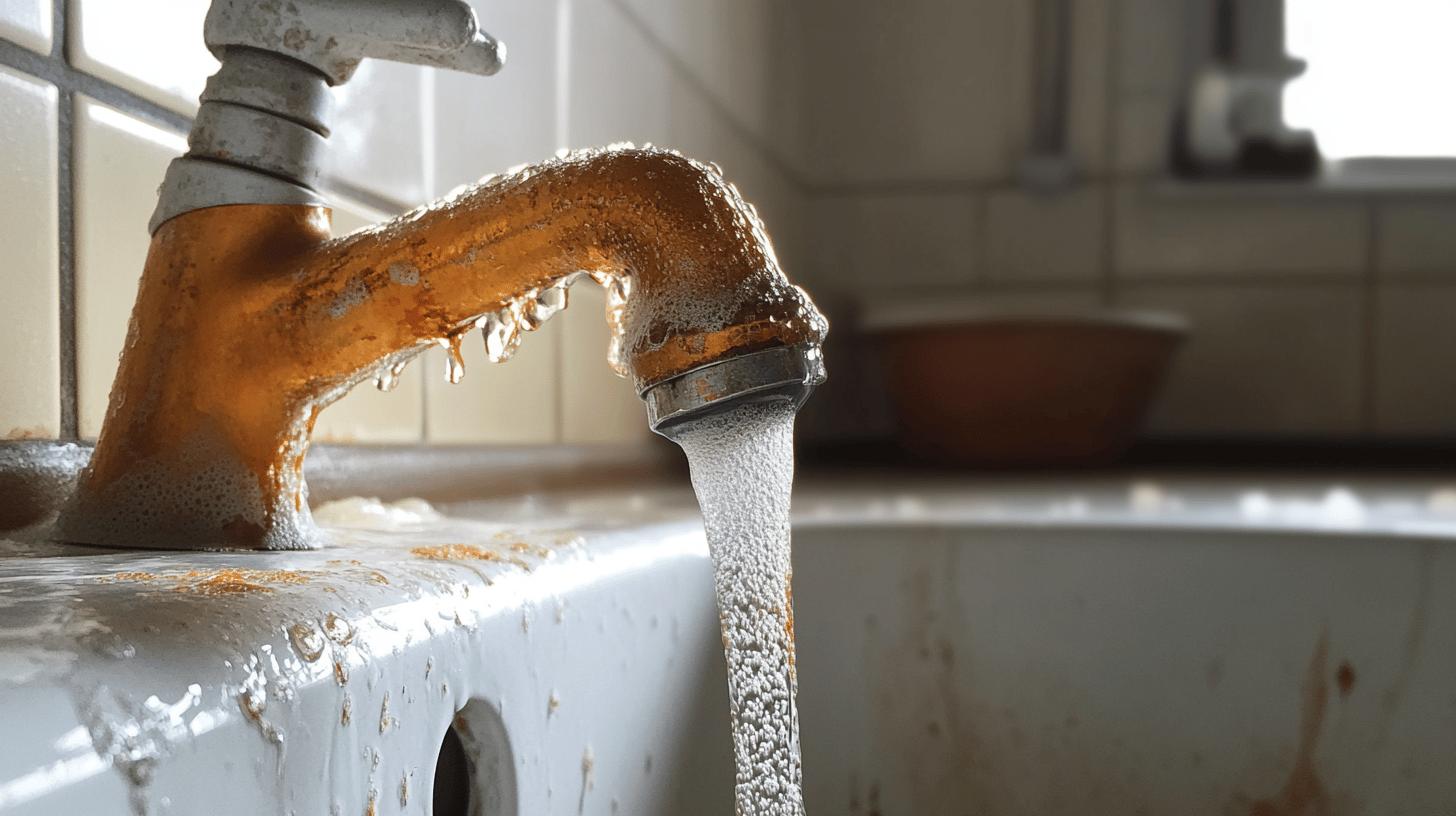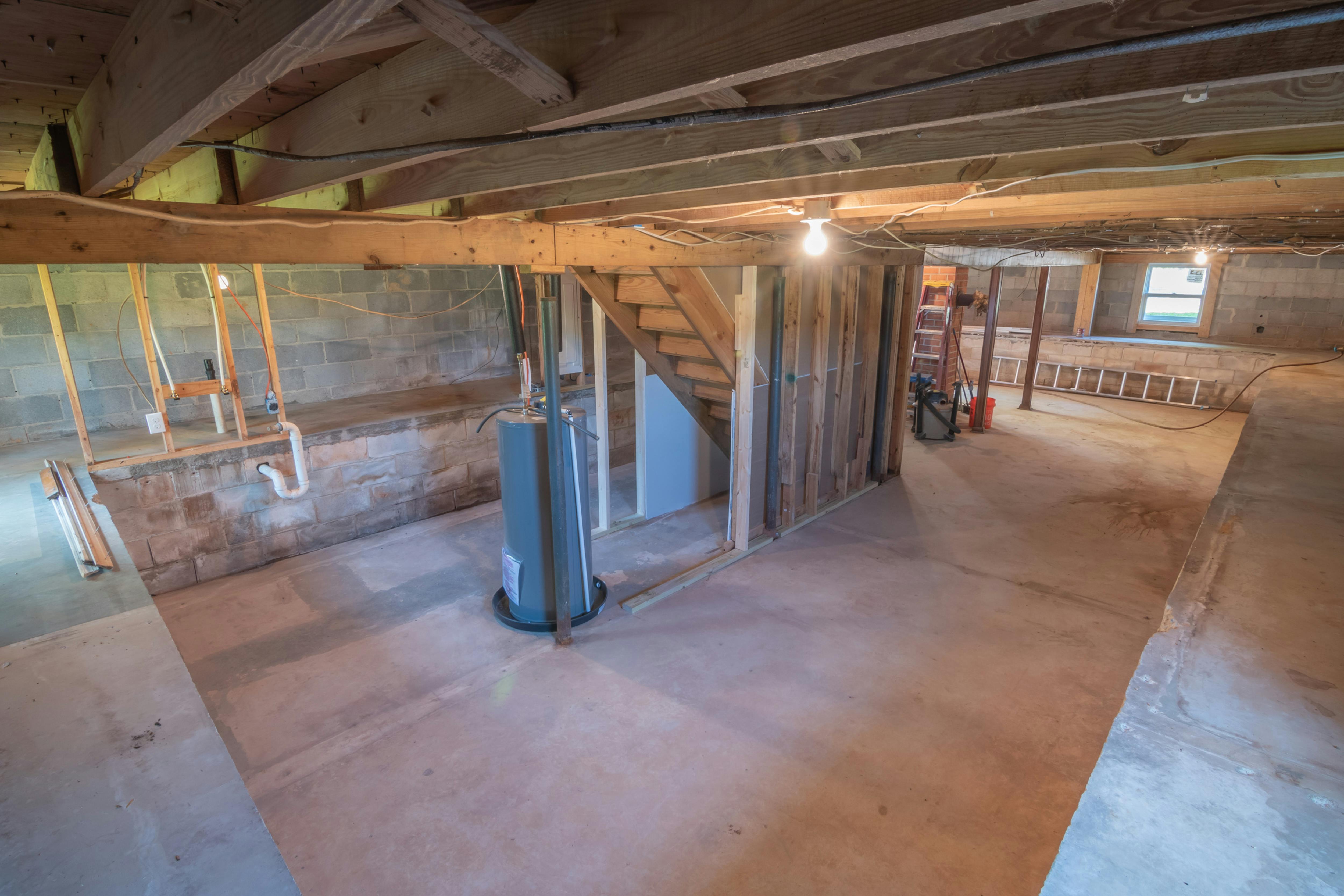TL;DR:
- Main cause of water heater failure: sediment buildup.
- Other issues: corrosion, thermostat malfunctions, pressure relief valve failure, leaks, and electrical problems.
- Early signs of failure: inconsistent water temperatures, unusual noises, leaks, rusty water, decreased lifespan, reduced hot water.
- Professional services: regular inspections, sediment removal, component repairs, and calibration.
- Maintenance tips: flush tank annually, check anode rod every 2-3 years, test pressure relief valve, insulate tank and pipes, inspect for leaks.
- Replacement signs: frequent repairs, persistent issues, age (10-15 years), rising energy bills.
Ever wondered why your water heater suddenly stops working? A common reason is sediment buildup in the tank. This can mess with heating and even cause the system to overheat, leaving you with cold showers and expensive repairs. By knowing what causes these problems, you can keep your water heater running smoothly. This article breaks down the main reasons water heaters fail and gives tips on how to prevent these issues from surprising you.
Understanding the Most Common Causes of Water Heater Failure
What causes water heaters to fail the most? It’s usually sediment buildup. Over time, minerals in hard water settle at the bottom of the tank, creating layers of sediment. This makes heating less efficient and can cause the heater to overheat, leading to an early breakdown.
Apart from sediment buildup, other issues often cause water heater problems:
- Corrosion: A failing anode rod can cause rust inside the tank, weakening its structure.
- Thermostat Malfunctions: Faulty thermostats can make water too hot or too cold, causing discomfort and wasted energy.
- Pressure Relief Valve Failure: If this valve breaks, pressure can build up too much in the tank.
- Leaking: Parts of the tank may start to leak, often due to corrosion or high pressure.
- Electrical Issues: In electric water heaters, problems with heating elements or wiring can stop them from working properly.
Fixing these problems quickly is crucial to keeping your water heater running efficiently and lasting longer. Regular checks and maintenance help catch issues early, preventing major damage and costly replacements.
Identifying Signs of Water Heater Failure

Catching the signs of a failing water heater early can save you from cold showers and expensive repairs. Recognizing these warning signs helps you fix issues before they get worse. Here are six common signs to look out for:
- Inconsistent Water Temperatures: Sudden changes from hot to cold can mean thermostat or heating element troubles.
- Unusual Noises: Sounds like popping or rumbling often mean sediment buildup at the tank’s bottom.
- Leaks: Water pooling around the heater suggests leaks, possibly from corroded parts.
- Rusty Water: Discolored water suggests corrosion inside the tank or a failing anode rod.
- Decreased Lifespan: Units over ten years old might be nearing the end of their life.
- Reduced Hot Water: Less hot water can point to a failing heating element or too much sediment.
Spotting these signs early can prevent bigger problems down the road. Regular maintenance and professional check-ups are key to keeping your water heater running smoothly and lasting longer.
The Role of Professional Plumbers in Preventing Water Heater Failure
Hiring professional plumbers for water heater maintenance is a smart move to avoid expensive breakdowns. They have the expertise to thoroughly inspect and maintain your system, catching potential problems early and saving you from unexpected failures and costly repairs.
Key Services Offered by Professionals
Professionals provide essential services to keep your water heater in top shape:
- Regular Inspections: Routine checks find early signs of wear, allowing timely fixes.
- Sediment Removal: Flushing out sediment prevents overheating and boosts efficiency.
- Component Repair and Replacement: Fixing parts like the anode rod can stop corrosion and pressure problems.
- Thermostat and Heating Element Calibration: Ensuring these work right keeps water temperatures stable.
Investing in professional maintenance significantly lowers the risk of water heater damage. It helps your unit last longer and work better, saving you money over time. Regular maintenance ensures that small issues are addressed before they turn into big problems, giving you peace of mind.
Maintenance Tips to Extend Water Heater Lifespan

Regular maintenance keeps your water heater running smoothly and helps it last longer. Simple steps can prevent sediment buildup and corrosion, which are common causes of failure. Consistent upkeep improves performance and helps you avoid expensive repairs and early replacements.
Essential Maintenance Steps
- Flush the Tank Annually: Yearly flushing removes sediment that causes inefficiency and overheating.
- Check the Anode Rod: Inspect it every two to three years. Replace it if it shows more than six inches of core steel wire.
- Test the Pressure Relief Valve: Regular checks ensure it releases pressure properly, preventing damage.
- Insulate the Tank and Pipes: Insulation helps keep water warm, saving energy and reducing heater strain.
- Inspect for Leaks: Look for leaks regularly, preventing water damage and catching issues early.
By following these steps, you can boost your water heater’s efficiency and extend its lifespan. Regular checks help keep everything running smoothly, giving you peace of mind.
When to Consider Water Heater Replacement
Water heaters typically last about 10 to 15 years. As they get older, they become less efficient and start causing more issues. Knowing when to replace your water heater can save you money and trouble.
Consider these signs for replacement over repair:
- Frequent Repairs: Constant fixes might mean it’s cheaper to buy a new unit.
- Persistent Issues: Ongoing problems like inconsistent temperatures suggest replacement.
- Age: Units near their lifespan often break down more, making replacement wise.
- Rising Energy Bills: Old heaters are less efficient, raising costs. A new one can cut bills.
Professional plumbers can help you decide whether to repair or replace your water heater. They assess its condition and give you advice on the best course of action. Their evaluation ensures you make an informed choice that fits your budget.
Final Words
Dealing with water heater issues starts with understanding the most common culprit: sediment buildup. This can cause inefficient heating and possible damage. Spotting signs like strange noises or rusty water lets you take action before problems get worse. Professional plumbers are essential for keeping your unit efficient through regular inspections and repairs. Consistent maintenance, like flushing the tank, also helps extend your water heater’s lifespan.
Taking these steps can prevent failures and save you money in the long run. Stay alert and be proactive to keep your water heater in great condition.
FAQ
What are the common symptoms of hot water heater problems?
Common symptoms include inconsistent water temperatures, unusual noises, leaks, rusty water, and decreased efficiency. Recognizing these issues early can prevent further damage and costly repairs.
Why is my electric water heater not working?
An electric water heater may not work due to a tripped circuit breaker, a faulty thermostat, or a broken heating element. Checking these components can help identify the issue and determine if repairs are needed.
What could cause hot water not to work while cold water does?
Issues with hot water while cold water remains functional often point to problems with the water heater itself, such as a faulty thermostat, sediment buildup, or heating element failure.
What should I do if my gas water heater is not working?
If a gas water heater is not working, check the pilot light and the thermostat. If these do not resolve the issue, professional inspection and repair may be needed to address potential gas valve or burner problems.
Why is my new hot water heater not working?
A new heater might not work due to incorrect installation, a defective thermostat, or electrical connection issues. Consulting the installation manual or contacting the installer can aid in identifying the issue.
How do I use the reset button on an electric water heater?
To reset an electric water heater, locate the reset button on the thermostat. Press it until you hear a click. If the heater doesn’t work afterward, it may require professional attention.
What usually fails on a water heater?
Water heaters often fail due to sediment buildup, faulty thermostats, corroded anode rods, or worn-out heating elements. Regular maintenance can help avoid these common failures and extend the heater’s life.
What is the normal life expectancy of a water heater?
Water heaters typically last between 10 to 15 years. Timely maintenance and proper usage can help ensure they reach or even exceed this lifespan.
How can you tell if your water heater element is bad?
A bad water heater element may cause symptoms like inconsistent water temperature or no hot water. Testing the element with a multimeter can confirm if it needs replacement.
What maintenance tips can extend the lifespan of a water heater?
Regular tank flushing, checking the anode rod, setting the thermostat correctly, and inspecting for leaks can extend its lifespan, ensuring the heater functions efficiently for many years.

